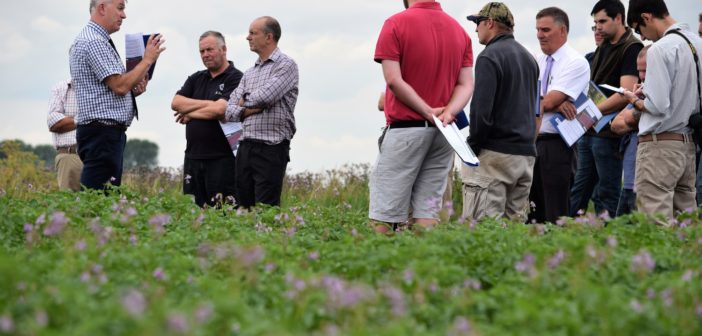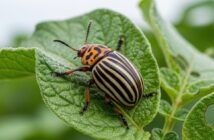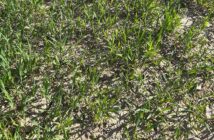Growing potato varieties that are both resistant and tolerant to Potato Cyst Nematode (PCN) holds the key to tackling one of the biggest threats to UK crops, according to leading agronomy firm Hutchinsons.
The firm is running a series of trials at its new Fenland potato demonstration site near Mildenhall in Suffolk to examine how 15 leading varieties differ in their resistance and tolerance to the pest under a high pressure situation.
The aim is to improve the limited information on varietal tolerance to PCN available from breeders and dispel some of the misconceptions around the role of “resistance”, says John Keer from Richard Austin Agriculture, who is managing the trial with his colleague Michael Rodger.
“Resistance and tolerance are not linked. There is a crucial difference growers have to remember,” says Dr Keer.
Resistance is the ability of a variety to affect the multiplication of PCN. Full resistance prevents formation of cysts on the root system, while partial resistance reduces the formation of cysts. Either type has the effect of allowing a gradual reduction in PCN levels in the soil, he explains.
“But resistance tells you nothing about the crop’s ability [tolerance]to produce a reasonable yield when grown in the presence of PCN. Generally, tolerant varieties produce larger root systems and are more vigorous in their growth habit.”
Varieties on trial
Initial PCN counts from multiple samples taken across the trial site ranged from 36-53 eggs/g of soil, all of which was identified as Globodera pallida– now the most widespread PCN species in the country.
“Like many farms, the dominance of Globodera pallida is a legacy from years of growing Maris Piper, which is resistant to the other main species, Globodera rostochiensis.”
Replicated plots of the 15 varieties were planted on 10 May. The performance of each one will be compared with and without a nematicide (Nemathorin at 30kg/ha) and taken through to harvest when yield, grade and final PCN count can be assessed.
“The black Fen soil on this site is very forgiving and all varieties look good at the moment,” says Dr Keer. “However, it will be interesting to see if they remain as close when it comes to final yield and quality. The really interesting thing will be the final PCN count from soil samples taken after harvest to see which varieties have helped reduce PCN pressure and which have not.”
Improving the understanding of varietal tolerance and resistance to PCN is essential to improve cultural control in future and reduce reliance on chemical options, which remain under scrutiny from regulators and environmentalists, he adds.
There may be opportunities to use PCN mapping and precision management systems such as Omnia to identify problem areas and target the growing of dual resistant and tolerant varieties within individual fields, especially as greater use of box stores makes segregation easier, he says. “PCN mapping will play a big role in integrated management.”
Comparing nematicides
While varietal resistance and tolerance is improving, nematicides remain a key part of integrated control strategies and a separate trial at the Fenland site is comparing the efficacy of leading products on plots of Maris Peer.
Initial PCN counts ranged from 12-64 eggs/g of soil, all of which was G. pallida.
Five different treatments were applied to replicated plots sown on 8 May, with another left untreated.
Again, crops will be taken through to harvest when final yield, grade and PCN count will be assessed.
“The soil is very tolerant in its own right so there is only a very slight visual difference between treated and untreated plots at the moment, but it will be interesting to see if there are any variations in tuber number, size and marketable yield,” says Mr Rodger.
“Nematicides used on soil as good as this function more to control any PCN increase than to protect yield because the effects of PCN feeding on the roots are alleviated by the background soil fertility. There may well be much bigger differences on less forgiving soils.”
[Box] Resistance/tolerance trial varieties:
Maris Peer Cara
Innovator Maris Piper
Markies Performa
Eurostar Arsenal
Rock Agria
Divaa Daisy
Royal Camel
Alicante




